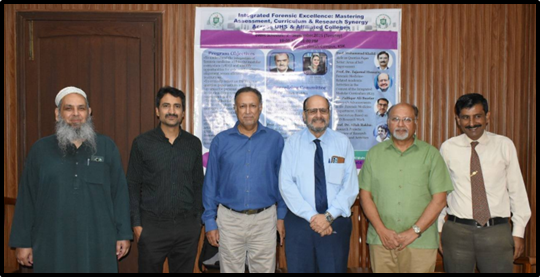
1. Violent Crime Investigation – Forensic Evidence Perspective (2019)
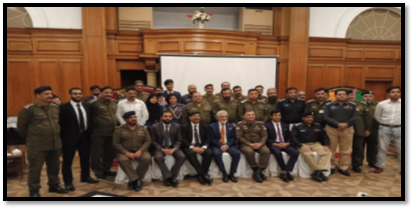
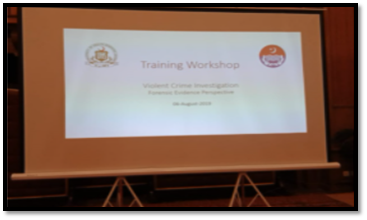
This seminar highlighted the critical role of forensic evidence in violent crime investigations. Faculty and guest experts guided participants on collection, preservation, and interpretation of forensic material such as blood, fingerprints, and trace evidence. The objective was to strengthen medico-legal officers’ and students’ understanding of crime scene dynamics and evidence-based reporting. Outcomes included enhanced practical knowledge of chain-of-custody protocols and improved ability to correlate forensic evidence with investigative requirements. The event created a platform for knowledge sharing between academia and practitioners, reinforcing the department’s role in bridging scientific methods with justice delivery.
2. Forensic Medico-Legal Training on Handling of Women Sex Violence Cases (2019)
This specialized training addressed medico-legal and ethical dimensions of sexual violence casework. Experts trained participants in proper evidence collection, victim-centered examination techniques, and legal documentation aligned with international best practices. The activity aimed to equip students and medico-legal professionals with sensitive handling skills while ensuring accuracy and integrity of medico-legal reports. Outcomes included heightened awareness of gender-sensitive medico-legal procedures, reduced secondary trauma for victims during examinations, and improved collaboration between healthcare and judicial stakeholders. The training had a significant impact in preparing graduates for real-world medico-legal responsibilities.
3. Interpretation of DNA & Serology Reports (2021)
Organized as a workshop, this activity provided participants with the skills to analyze and interpret DNA and serological reports in criminal and civil investigations. The objective was to bridge the gap between laboratory science and medico-legal reporting. Participants engaged in case-based exercises, learning how to interpret STR profiles, population genetics, and blood grouping results. The outcome was improved competency in understanding the limitations and strengths of laboratory results, and the impact was seen in enhanced report writing and court testimony skills among postgraduate students.
4. Interpretation of Medico-Legal & Toxicological Reports and their Interconnection in Investigation (2021)
This workshop focused on the integration of medico-legal findings with toxicological evidence. The objective was to demonstrate how toxicology results complement injury interpretation, cause of death determination, and investigative strategies. Faculty-led sessions involved case discussions where medico-legal autopsy findings were paired with toxicology reports. Outcomes included improved multidisciplinary interpretation skills and deeper understanding of toxicology’s role in forensic practice. The impact was better preparedness of students to provide holistic medico-legal opinions in court settings, enhancing credibility and accuracy.
5. Professional Field Training at CRO Office, Punjab (Qila Gujjar Singh) – May 18–19, 2022
Students were given direct exposure to crime record operations during this two-day professional training at the Punjab Police CRO Office. The objective was to familiarize students with record management, biometric systems, and data correlation in criminal investigations. Outcomes included enhanced understanding of field documentation processes, data verification techniques, and the role of CRO in supporting forensic investigations. This training had the impact of connecting academic learning with operational policing systems, preparing graduates for collaborative field work.
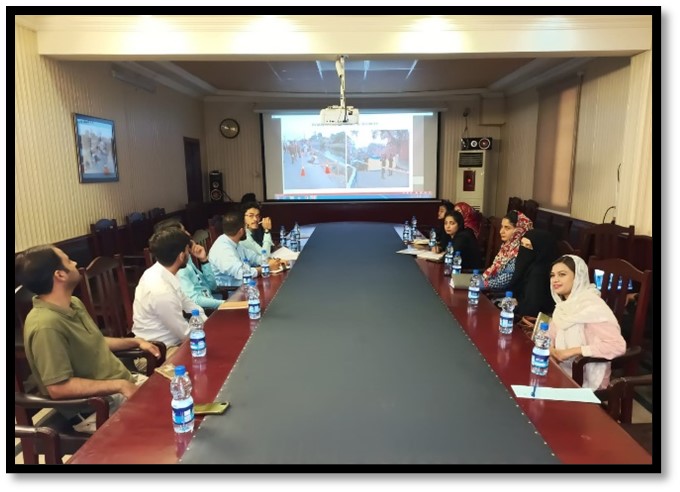
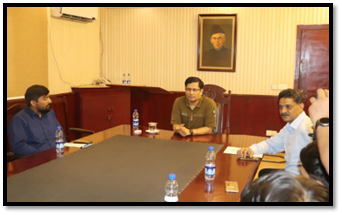
6. Six-Month Internship with CRO Branch Crime Scene Unit – Punjab Police (March–October 2021, presented July 5, 2022)
his extended internship placed postgraduate students at the Crime Scene Unit of Punjab Police Investigation Headquarters. Objectives included hands-on learning in evidence recovery, scene documentation, and forensic photography. Interns gained practical skills in chain-of-custody management, fingerprint lifting, and trace evidence handling. The outcome was direct exposure to operational protocols and real-case scenarios, while the impact was clear in improved employability and confidence of students in handling complex medico-legal investigations.
7. National Consortium for Drug Free Community (July 19, 2022)
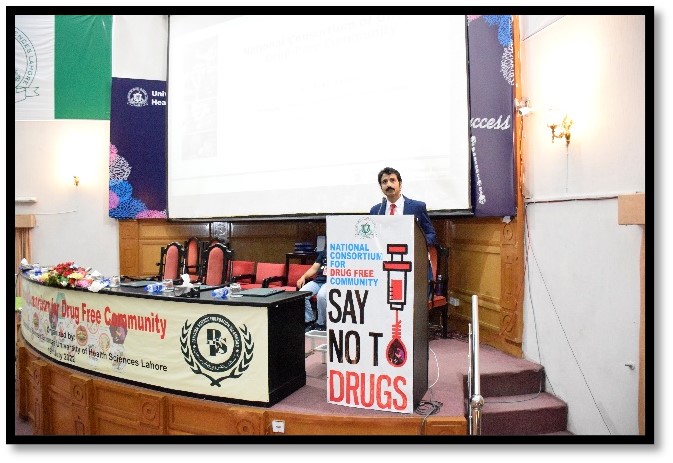
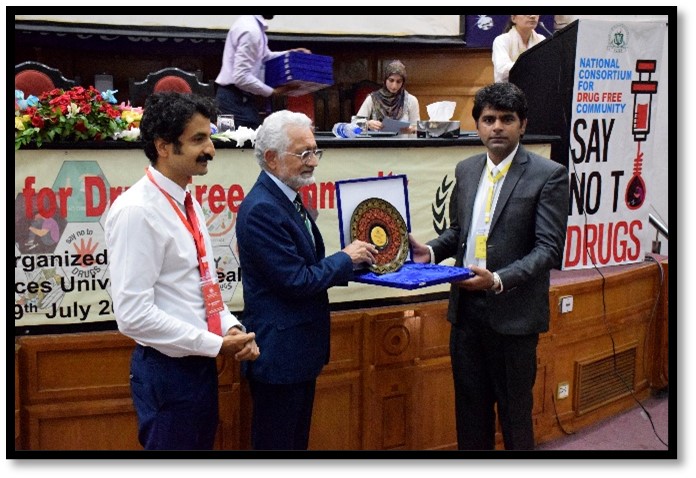

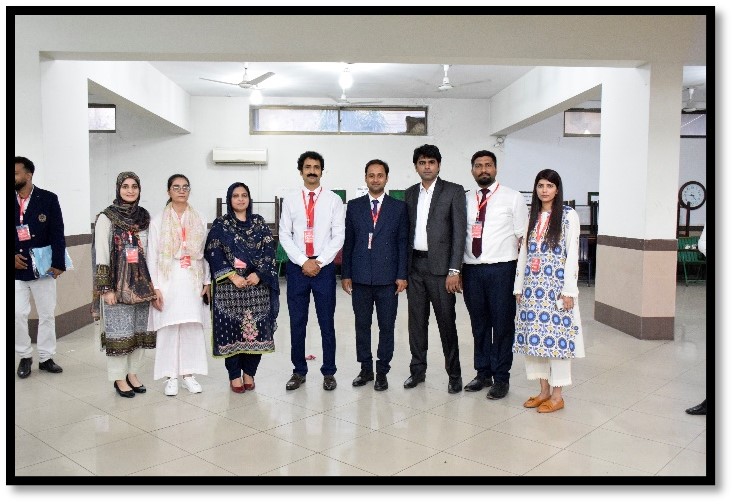
he department participated in the National Consortium for Drug Free Community, aiming to combat drug abuse through integrated forensic, medical, and community approaches. Objectives included awareness building, capacity development in forensic toxicology, and policy advocacy. Outcomes included collaborative strategies for drug detection, analysis, and prevention. The impact was the strengthening of inter-institutional networks for addressing substance abuse at academic and community levels.
8. DSFC 2025 – Integrated Forensic Excellence
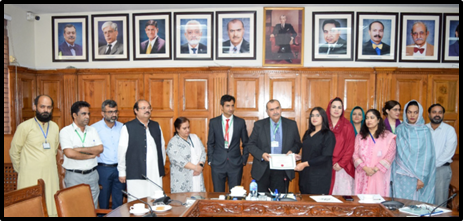
Organized in Sep 2025, this initiative aims to harmonize assessment, curriculum, and research across UHS and its affiliated colleges. Objectives include creating standard benchmarks for forensic education, fostering joint research initiatives, and aligning curriculum with international trends. Expected outcomes are improved academic consistency, enhanced quality of postgraduate training, and interdisciplinary research synergy. Its projected impact is the establishment of UHS as a national hub for forensic science education and innovation.
